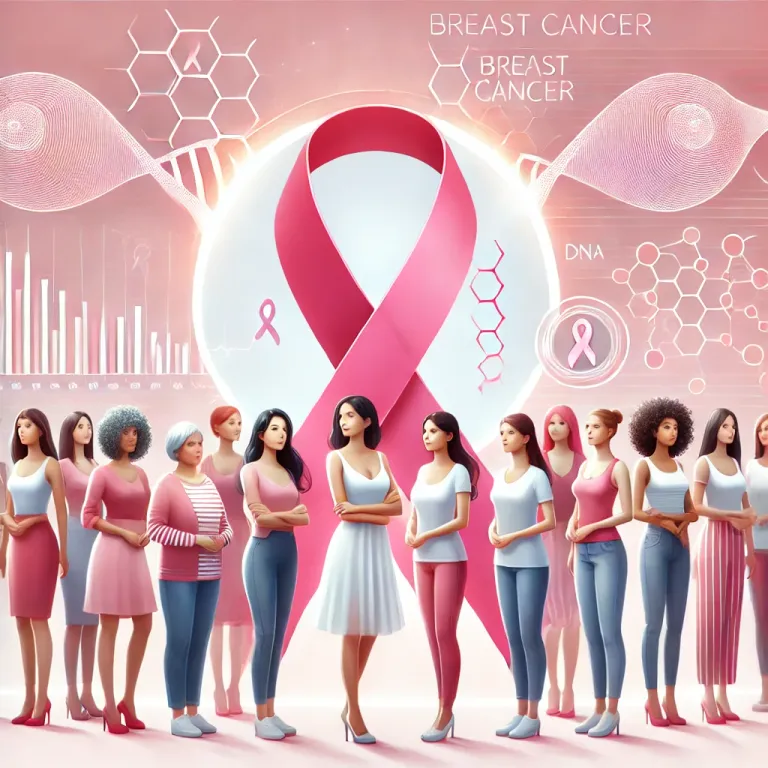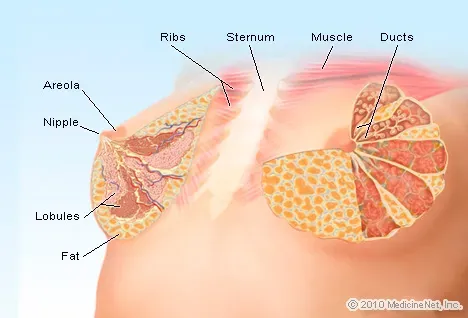 [AI generated]
[AI generated]
I am sorry to tell you that the tests we did shows that you have breast cancer
Those words always sting like pepper, yet over 6000 women are given those words or something similar to that every day. Breast Cancer is popular for it's ability to consume a person's life and livelihood in a short period of time.
Mrs J, a 35yr old woman had just gotten back from a stressful day at work and decided to take a nap in her living room. She stretched after 2 hours of sleep and somehow her hand got to her left breast where she felt a lump. She didn't think much of it but decided to go and see her doctor about it.
12 weeks later, her 2 breasts had been cut off, she was battling with the intense sickness and hair-loss that the chemotherapy drugs were causing her. In a short moment, her life was completely changed, she spent her savings on surgical procedures and on medications and she was feeling completely awful.
Mrs J, was now living as a shadow of herself, always indoors, crying in front of the mirror. She couldn't go to work, couldn't take care of her 4 yr old boy, all because 12weeks ago, she found a lump on one breast. She had no other symptoms, nothing else out of the ordinary.
What is Breast Cancer?
Of course, breast cancer is popular and to some people, it is an assured death sentence, but what exactly is it? How would one describe this very dark angel of death?
Cancer is a word that has it's origin from Hippocrates, the father of medicine. When he saw abnormal swellings on patients, he noticed that they had some abnormal veins on them that made the swelling look like a crab, so he called it Karkinos, which is the Greek word for means crab.
Over time, the term has been adopted over different languages to refer to any body swelling that is known to spread to other parts of the body. Thus, cancer is a swelling of a part of the body that has the potential to spread to another part of the body and cause damage.
Breast Cancer would therefore refer to the swelling of the breast that has the potential to spread to another part of the body and cause damage. It describes a disease were the cells in the breast grow abnormally and out of control forming a swelling that is called a lump or tumour. If this is left untreated, it can destroy the normal cells in the breast and other parts of the body as well.
Types of Breast Cancer.
There are several types of breast cancer. They can be classified by how fast they grow, their shape, the part of the breast that they attack first, the stage etc. But it is important to realize that based on the area of the breast that is affected we can classify breast cancer into 3 main types.
In other to understand these types of cancer, let us explain a bit of how the breast is organized. the breast has milk producing centres somewhere in the middle and there are pipes that connect these milk producing houses to the nipple where the milk can be let out.
The milk producing houses are called **Lobules **while the pipes that carry milk to the nipple are called ducts. Surrounding this milk producing and conveying system is a collection of fat cells.
- Ductal Carcinoma In Situ - this is a type of breast cancer that is restricted to the milk ducts(pipes that carry milk). The abnormal cells have not spread and sometimes the only symptom might be a bloody nipple discharge. Most times there are no symptoms and it only seen during a breast scan.
If it is left untreated the cancer cells can break through the wall of the breast ducts and spread to the surrounding breast tissue, leading to the next stage.
Invasive Ductal Carcinoma- the next stage when the cancer cells are no longer restricted by the walls of the milk ducts. Here, the cancer cells are attacking other normal breast cells and forming a bigger and massive lump.
Invasive Lobular Carcinoma- this is when the cancer starts from the milk producing house in the breast.
Knowing the kind of breast cancer helps doctors to formulate a solid treatment plan as the treatment is dependent on the type and stage of the cancer.
Who is at risk for breast Cancer
Although breast cancer can happen to anyone, there are some things that make some people more likely to have it than others. Some of these things can be changed/modified, while some others cannot be.
Breast cancer occurs most times in women, about 99% of the time.
Age- the older a woman gets, the greater her chances of having breast cancer.
Family history- if you have a nuclear relative with breast cancer( eg mother or sister), your risks of breast cancer is raised.
Genes.- there are some particular genetic mutations that make some women more at risk for certain kinds of cancer.
Hormones. - Women who start their periods early(typically before age 12) or go through menopause late (typically after 55) are at increased risk of breast cancer due to the longer exposure they have to oestrogen.
Lifestyle- A few things like being overweight, drinking alcohol and prolonged exposure to radioactive substances can increase the risk of cancer.
Although these things increase the risk of having breast cancer, they are not absolute and it is important to get checked through regular screenings.
What are the signs of Breast Cancer?
Breast cancer in it's early stages can be difficult to identify if there is no high index of suspicion. What that means that if you are not aware of breast cancer, it is difficult to spot the warning signs when they show up. Some of these signs could be
a lump or thickened area of the breast that feels odd compare to the other parts of the breast.
Visible changes in the size, shape, colour or appearance of the breast... it could be redness, or dimpling of the skin(sometimes called Peau de orange
Visible nipple changes, like inversion of the nipple or a change in position, or discharge from the nipple.
Unexplained breast pain or discomfort.
These symptoms do no mean that you have breast cancer, but they are definite signs that you should get yourself checked.
Catching breast cancer early is important because it provides a very good chance of recovery. This underscores the importance of regular screening which can be in the form of a regular Self Breast Examination(SBE) or a routine mammogram or ultrasound.
Self Breast Exam(SBE)-
In other to recognize abnormal breast changes, it is important to first know what normal looks and feels like. Regularly examining your breast gives you the opportunity to know and get acquainted with what normal looks like for you.
Although self exams still miss things from time to time, they are important in increase self breast awareness and your ability to recognize changes if they do occur.
There is no consensus on how often you should examine your breasts. But once a month or so, a detailed examination could be enough to get you aware of what your breast looks and feels like.
Mammogram-
this is an x-ray of the breast and is seen as the most effective way to detect breast cancer early. It is usually offered to women who are above 35 or 40 yrs.(depending on the location). If you are above 40 yrs you should get a mammogram once every 1 to 3 yrs.
Ultrasounds and MRI-
are usually reserved for women who have dense breast tissue(aka big breasts) who cannot have an X-ray done.
What are the options for treatment?
Treatment for breast cancer depends on the type, the stage, the character of the cancer as well as your overall general health.
Surgery- usually one of the first steps in removing the breast lump. It could be as simple as a lumpectomy which removes the cancerous lump or a complete mastectomy which removes the entire breast. Depending on how far the cancer might have progressed, some lymph nodes around the breast and armpit may be removed to prevent it from spreading.
Radiation- High energy rays can be used to target any remaining cancer cells in the breast and surrounding areas to destroy them.
Chemotherapy- some drugs can be used to target and kill cells that are cancerous in through out the body. Sometimes, it is used before surgery to shrink the tumour, or after surgery to reduce the chances of the cancer recurring.
Hormonal therapy-- some kinds of breast cancers grow in response to some chemicals that our body naturally produces called hormones. Some specific drugs can block these hormones from encouraging the cancer to grow.
Other forms of treatment include, targeted therapy, and immunotherapy which is a new form of treatment. Sometimes it is a combination of treatments that is needed.
Preventing Breast Cancer.
I wish I could say with certainty that there is a sure way to prevent breast cancer, but the truth is, there isnt. The best we can do is reduce our risk of developing it by...
- Maintaining a healthy weight
- limiting alcohol intake.
- exercising regularly.
- avoiding ultraprocessed meals.
If you have a family history, you might want to consider genetic counselling and testing if it is available.
Conclusion
Breast Cancer is overwhelming, but there are many people who go on to live long and fulfilling lives after treatment. The key is detecting it early and commencing treatment as soon as possible. Knowing what to look out for can help with that and by now, you probably are armed with that knowledge.
Having breast cancer should not be a death sentence. It is possible to live a healthy live after cancer. Yes there are mental and emotional as well as physical challenges, but with the right support, treatment and recovery is usually assured.
Thank you for reading so far. I know it was a long read.

I am Covenant, a Medical Doctor with a passion for holistic medicine-( fancy word for treating a patient as an individual and not just addressing their symptoms).
My focus lies in the deep connection between mental health and overall wellbeing, and I create content across various medical topics with an emphasis on mental health. Follow me for insights into holistic medicine and approaches to health and wellness.

Wow this is quite informative and I needed to know this as I have someone dear to me treating it as well 🙏🏽💪🏾💪🏾
I am glad that this was helpful to you.
Stick around for the medical Trivia questions Mondays to Fridays,every week.
Alright I will thank you
Sending you an Ecency curation vote